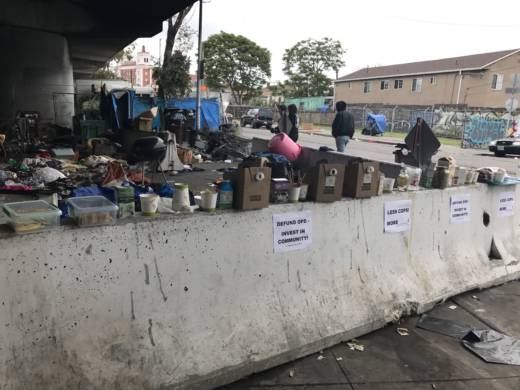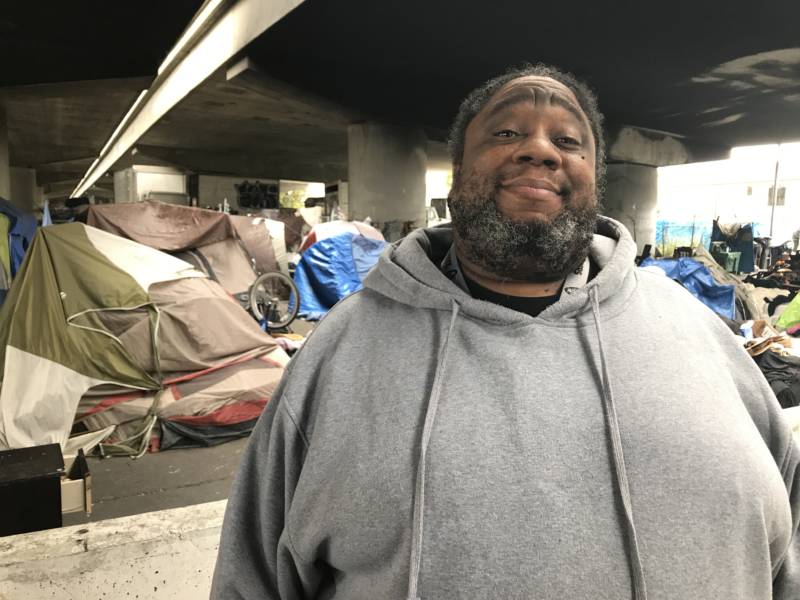Updated Tuesday, 12:00 p.m.
The underpass that Oakland officials dedicated as a sanctioned homeless encampment was cleared on Friday after a fire broke out earlier in the week, bringing a sour end to the project at a time when cities around the Bay Area have struggled to deal with homelessness.
More than a dozen residents stood by while homeless advocates, police, a council member and city representative discussed next steps -- clearing the site at 35th and Peralta streets near the Emeryville border.
“We’ve spent two Christmases out here. That’s two years accumulating things like clothes and a lot of stuff," said Mario Clemente. “We all respect one another. No fights or violence. We just want community.”
Despite hundreds of millions of dollars and decades of fighting homelessness, the Bay Area is struggling to find ways to build programs that work. The same month San Francisco received $100 million to reduce chronic homelessness -- its largest ever private donation for the cause -- this city-sanctioned encampment in Oakland was cleared out, bringing attention to the ever-present long-term problem that remains: no permanent housing.

